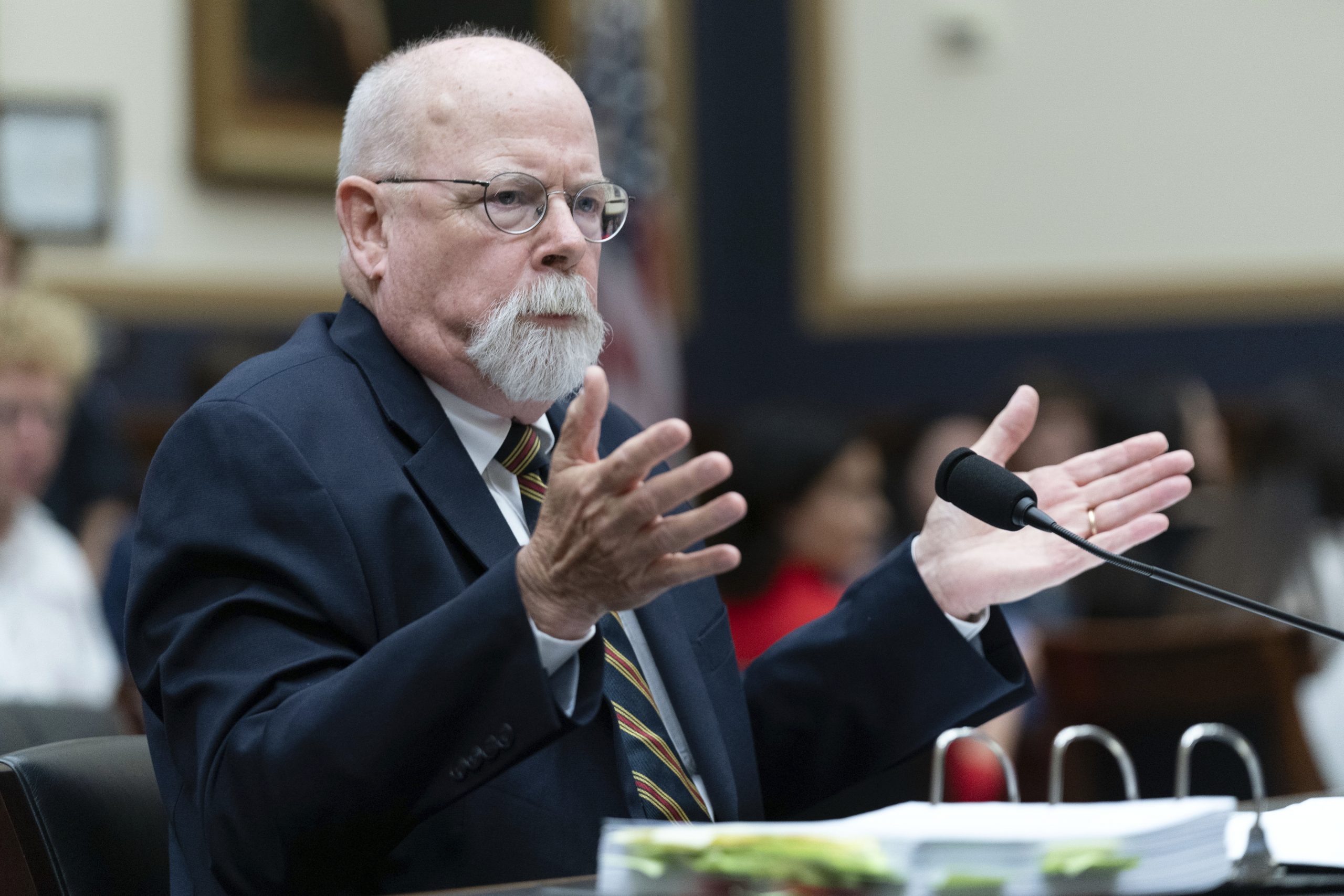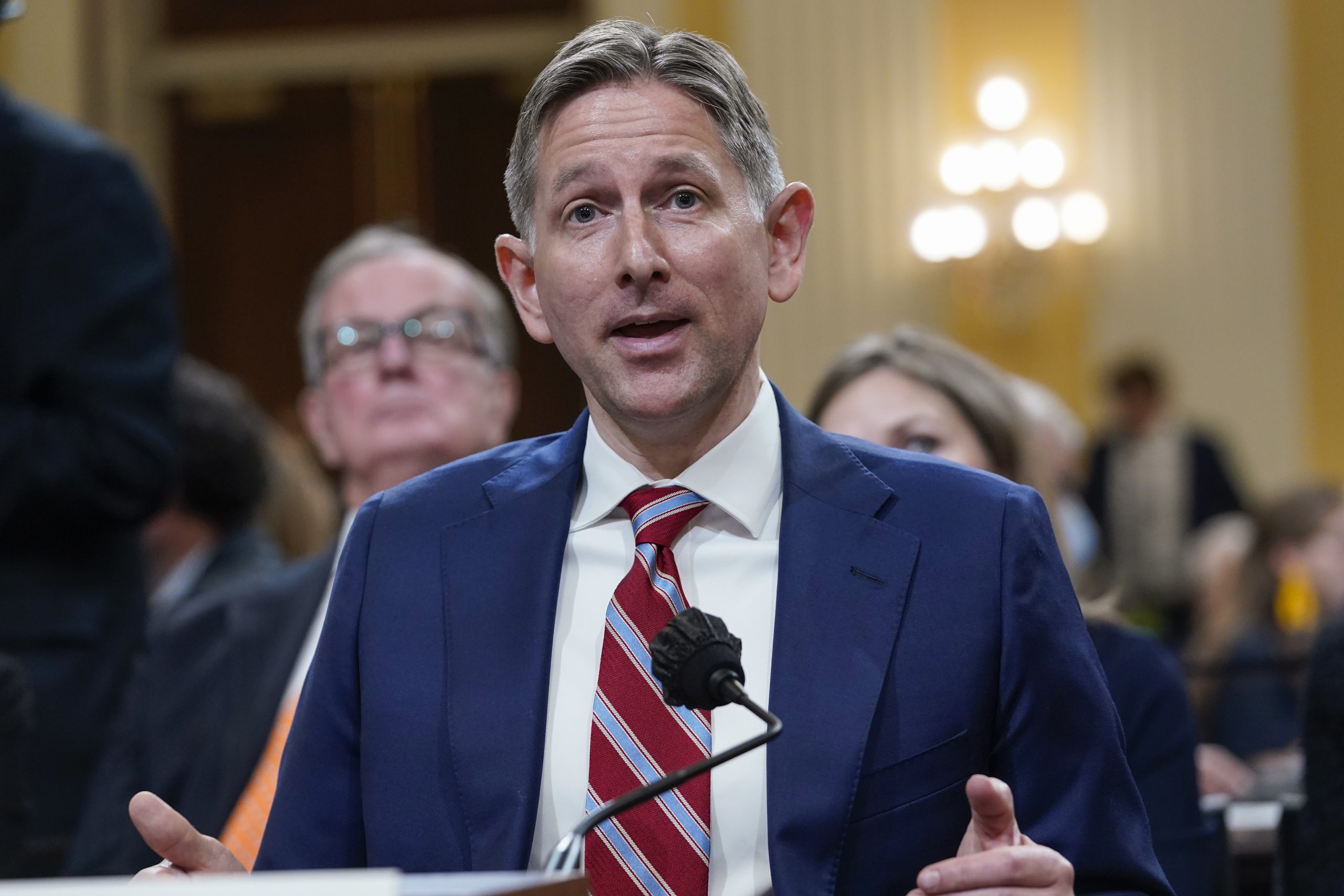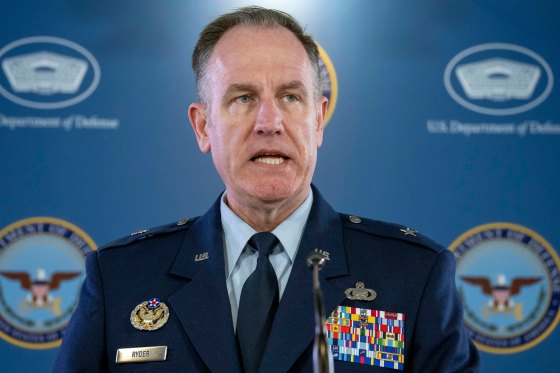Democrats and Republicans on Wednesday sparred over special counsel John Durham’s report on the FBI investigation of collusion between Russian officials and Donald Trump’s 2016 presidential campaign, rehashing the political implications of both Durham’s report and the original Trump-Russia probe.
“I want to emphasize in the strongest terms possible that my colleagues and I carried out our work in good faith with integrity and in the spirit of following the facts wherever they lead without fear of favor,” Durham testified. “At no time and in no sense did we act with the purpose to further partisan or political ends.”
In an interview on Fox Business on Wednesday morning, Judiciary Chair Jim Jordan (R-Ohio) said he expected the hearing to “give detail and add more color” to the findings of the report, which faulted the FBI’s “Crossfire Hurricane” investigation but provided no new evidence proving definitively that it was politically motivated.
“Seven years of attacking Trump is scary enough,” Jordan said in his opening statement at the hearing. “What’s more frightening is that any one of us could be next. In fact, it’s already started: Parents at school board meetings are terrorists, pro-life Catholics are extremists, even journalists aren’t safe.”
On the other side of the aisle, the committee’s ranking Democrat, Rep. Jerry Nadler of New York, accused House Republicans of planning the hearing and dramatizing Durham’s report in an attempt to distract from Trump’s four pending criminal probes.
Nadler called the report itself “a deeply flawed vessel,” asserting that the four-year, $6.5 million investigation failed to uncover any wrongdoing that Justice Department Inspector General Michael Horowitz had not brought to light during his 2019 investigation of the Trump-Russia probe.
“Mr. Durham constructed a flimsy story built on shaky inferences and dog whistles to far-right conspiracy theorists,” Nadler said on Wednesday. “By prolonging his investigation, Durham was able to keep Donald Trump’s talking points in the news, long after Trump left office.”
Rep. Adam Schiff (D-Calif.) led the criticism of the Durham investigation for its lack of tangible results. Durham charged three defendants during the probe, two of whom were acquitted by juries, while the third was sentenced to 12 months’ probation after pleading guilty. Schiff also noted that Durham’s report did not dispute any of the findings in special counsel Robert Mueller’s 2019 report on Trump’s links to Russia, which was initiated by the FBI probe.
“The only distinguishment between [Mueller’s] investigation and yours is he refused to bring charges where he couldn’t prove guilt beyond a reasonable doubt,” Schiff told Durham, “And you did.”
In response, House Republicans returned accusations of partisanship, with Rep. Nathaniel Moran (R-Texas) voicing concern about the FBI’s willingness to launch a full investigation without providing Durham with evidence that it had corroborated the initial information it received. He noted, too, that the FBI elected not to interview former Trump advisers Carter Page and George Papadopoulos or Clinton aide Charles Dolan, arguing that these omissions pointed to political bias.
Moran called the FBI’s investigation of Trump “politically motivated” and a violation of basic department procedures.
Several Republicans on the committee also sought to redirect discussion to the findings of the report, echoing Durham’s calls for reforms to the FBI. Rep. Jeff Van Drew (R-N.J.) used his time in questioning to call for a “complete restructuring” of the FBI, which he said had been “politicized” and “weaponized.” Durham concludes his report with a 17-page discussion on how similar FBI investigations could be handled differently, suggesting that the department assign an official to challenge FBI surveillance applications and avoid relegating important information to footnotes.
Durham, for his part, stood by the findings of the report and defended himself from Democratic criticism for the duration of the hearing. He broke with Trump on several key points, praising both Mueller and Barr, both of whom Trump has publicly decried. He also affirmed that there was “substantial evidence” of Russian interference in the 2016 presidential election.




